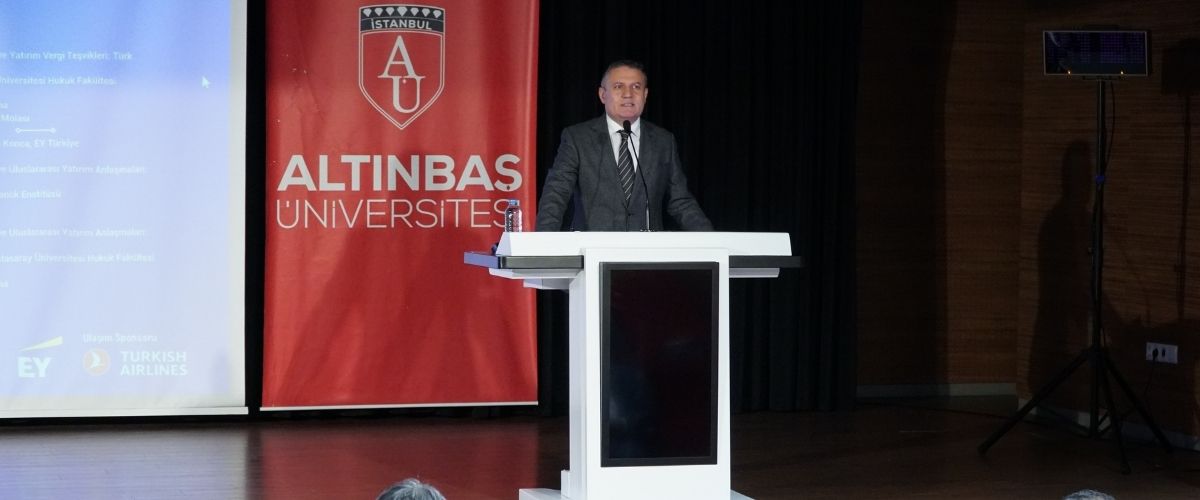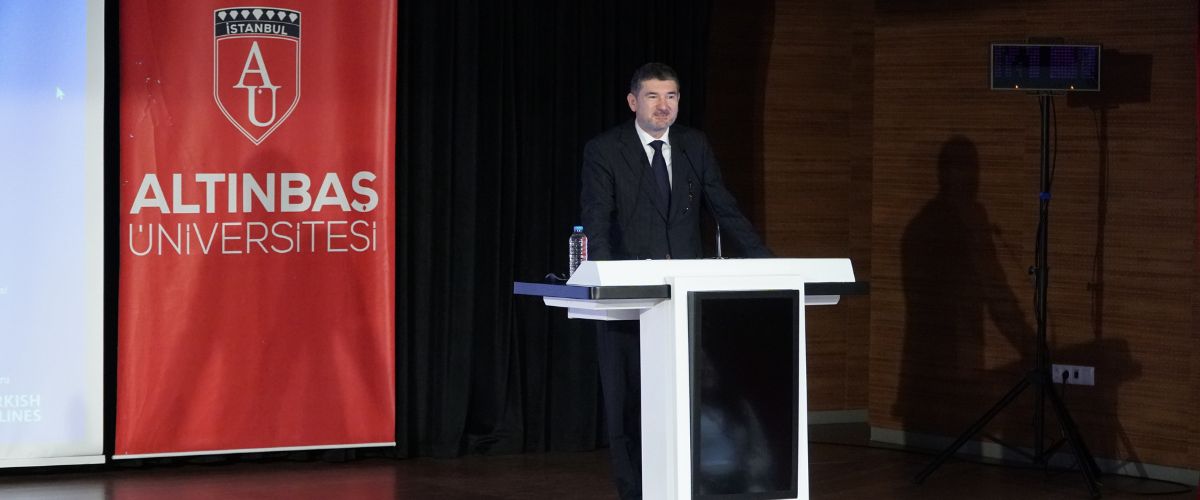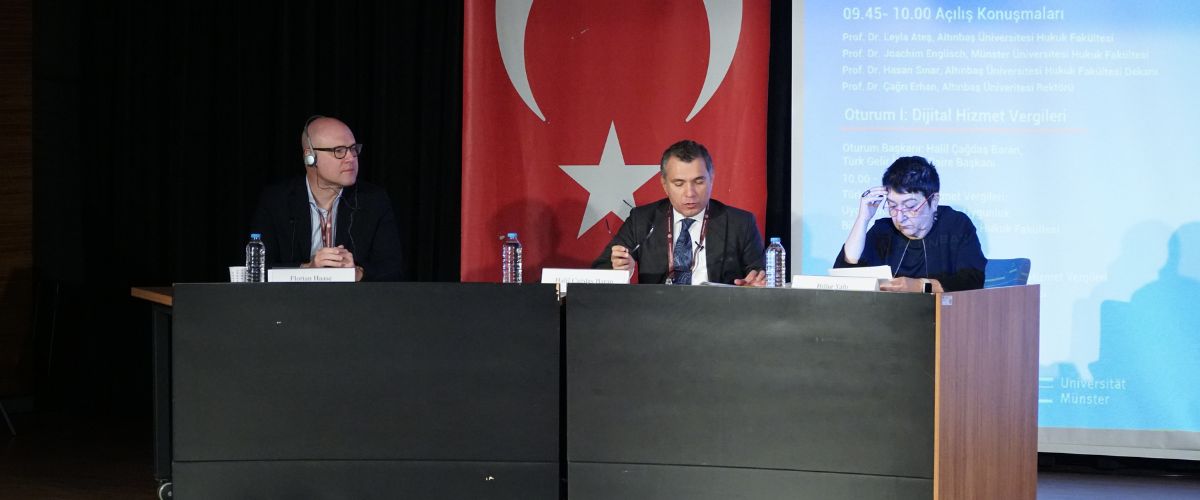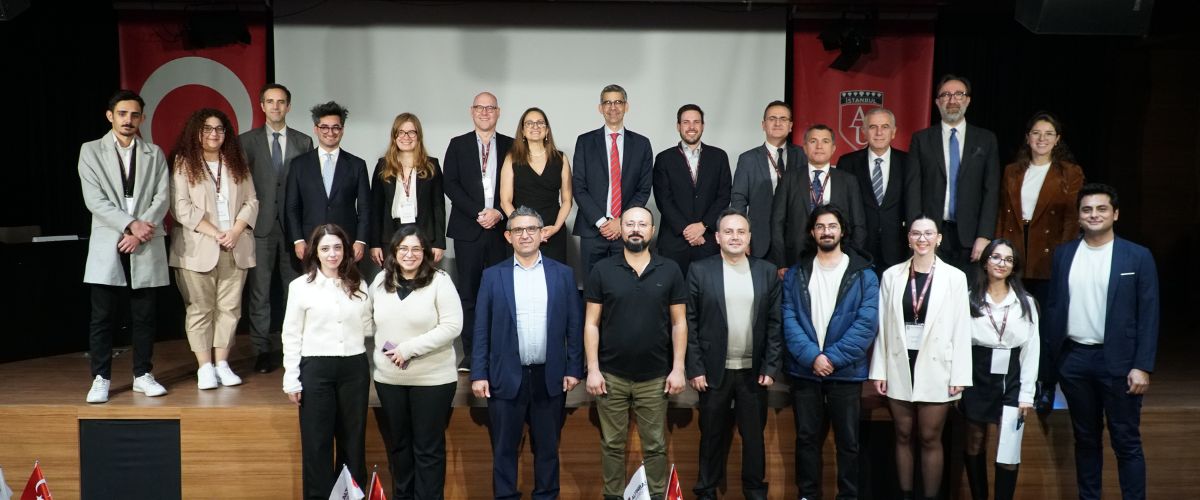4th Turkish - German International Tax Law Biennial was Held
The 4th Turkish - German International Tax Law Biennial was held at Altınbaş University. Speaking at the opening of the biennial, Altınbaş University Rector Prof. Dr. Çağrı Erhan said: “Taxation is a sign of sovereignty”.
The 4th Turkish - German International Tax Law Biennial, organized in cooperation with Altınbaş University Faculty of Law and Münster University Faculty of Law, was held at Gayrettepe campus. At the international conference where Digital Service Tax and Global Minimum Tax were discussed, how to tax digital economy revenues, which have increased rapidly in the last 10 years, and their global effects were evaluated. Whether Trump's inauguration will open a new page in international tax negotiations, the US stance on this issue and the future of global cooperation are eagerly watched.
Altınbaş University Rector Prof. Dr. Çağrı Erhan delivered the opening speech of the conference, which was attended by many local and foreign experts in their fields. Prof. Dr. Erhan stated that buying and selling on digital platforms, which have become a part of our daily lives, have great effects on a global basis. Stating that law is a dynamic field, Prof. Dr. Çağrı Erhan noted that it evolves in parallel with the changes in social relations, economic and political structures. “In tax law, new regulation needs arise in parallel with digital developments. The topics to be discussed at this conference and the results to be published will both contribute to the literature and guide legislators and bureaucrats.”
Tax advantage should be used for investment incentives
Prof. Dr. Çağrı Erhan, describing taxation as an indicator of sovereignty, such as printing flags, money and stamps, said, “If others start to interfere in how much tax a state will collect from whom, it is sovereignty that should be questioned here.” He said. Reminding that the authority to impose taxes is one of the most important sovereignty rights of states, Erhan said, “Collecting taxes in an equitable manner is the most important duty. It has already been proven that there is no linear connection between tax rate and tax collection. As tax rates increase, more taxes cannot be collected. If the tax rates are increased, which should be used as an incentive tool, you will drive businessmen who come for investment to the Caymen Islands.”
Prof. Dr. Erhan said that in a national security document of the United States of America released in 1996, it was stated that globalization could not be prevented and that it would create great opportunities, especially for Americans, and that since then, the US has developed its policy to declare those who oppose legal and economic transformations in the name of globalization as failed states or governments. Pointing out that this is not limited to the US but also includes the West, Erhan said, “From the World Trade Organization to NATO, it makes arrangements in this direction. It is not for the well-being, beauty, security, peace and tranquility of the world, but for the welfare of the Americans and then for the welfare of the global north, which is a very fashionable term today.”
In addition, Erhan pointed out that all political indicators show that the world is on the verge of a very important transformation. He predicted a very different world order in 2050. “There is a rise in Asia. There is a formation we call BRICS and there is a very serious cooperation between China, Russia and India. They oppose the current order. They say, 'After the Second World War, you have been ruling us all through the IMF and the World Bank. There are 5 billion people who say “enough is enough”. We look forward to the establishment of a tax system for the happy majority, not the happy few.”
“A global approach is needed in taxation”
Dean of the Faculty of Law Prof. Dr. Hasan Sınar stated that more time is spent in the digital world in all areas of life and that taxation of these transactions is important.
Referring to the principle of justice in taxation, Hasan Sınar said, “Social inequalities are clearly in our lives. The gap between direct and indirect taxes has widened. There is a need for a global search for income-appropriate taxation in order to strengthen the social state. New approaches and a new road map should be drawn on tax issues.”
“Türkiye's income will decrease with Pillar 1”
Prof. Dr. Leyla Ateş, Head of the Department of Financial Law at Altınbaş University, made observations on the practices in the world and Türkiye. She pointed out that the search for a two-pronged solution for the taxation of multinational company profits, including digital economy companies, has been going on for a long time under the roof of the OECD, of which Türkiye is a member. She stated that the first pillar, Pillar 1, aims to change the principles underlying the taxation of multinational companies, while the second pillar, Pillar 2, aims to subject multinational companies with annual revenues above 750 million Euros to a minimum level of tax. Prof. Dr. Leyla Ateş informed that if the OECD finalizes Pillar 1, Türkiye will have to abolish the digital service tax adopted by Law No. 7194 in 2019. He underlined that this situation does not seem to be in Türkiye's favor in terms of revenue expectations. “According to current calculations, Türkiye's revenue from Pillar 1 will be much lower than the revenue from the digital service tax. At the moment, however, the fate of Pillar 1 work is drifting towards uncertainty.”
“Türkiye should review its investment incentive system while implementing the global minimum corporate tax”
As a result of Pillar 2 studies, the OECD adopted the global minimum tax on December 20, 2021 and published the Model Rules to guide its transposition into domestic law. Prof. Dr. Leyla Ateş stated that Türkiye transposed these rules into its domestic law by adding them as Chapter 5 to the Corporate Tax Law in July 2024 with Law No. 7524. Leyla Ateş continued her statements as follows: “Due to the mechanism at the core of Pillar 2, the tax revenue that one country does not receive due to the advantages it provides in its investment incentive system turns into tax revenue of another country. This means limiting international tax competition through corporate tax rates. Therefore, it is imperative for Türkiye to review its investment incentive system when implementing the global minimum corporate tax. This makes it inevitable to evaluate the effectiveness of tax incentives and reform ineffective tax incentives, which has been felt in our country for many years.” Finally, he emphasized that the reform of tax incentives should be carried out jointly by the Revenue Administration, the Ministry of Industry and Technology, the Ministry of Trade and the Presidential Investment Office with a holistic perspective.
“The US is not satisfied with the developments”
Joachim Englisch from the University of Münster Law School stated that taxation efforts for the digital economy are accelerating. He emphasized that in the coming period, the focus will need to be on the legal and political problems posed by digital service taxes. He underlined that more than 20 countries, including major economies such as Brazil, India, Indonesia, Türkiye, France, Italy and the United Kingdom, have enacted digital service taxes. However, Joachim Englisch also noted that the US is not satisfied with these developments and pointed out that digital service taxes have a disproportionate impact on large US-based technology companies. “US authorities have complained that these firms are unable to offset the taxes they pay abroad on these taxes. Current US policies do not envision any changes to remedy this situation.”








